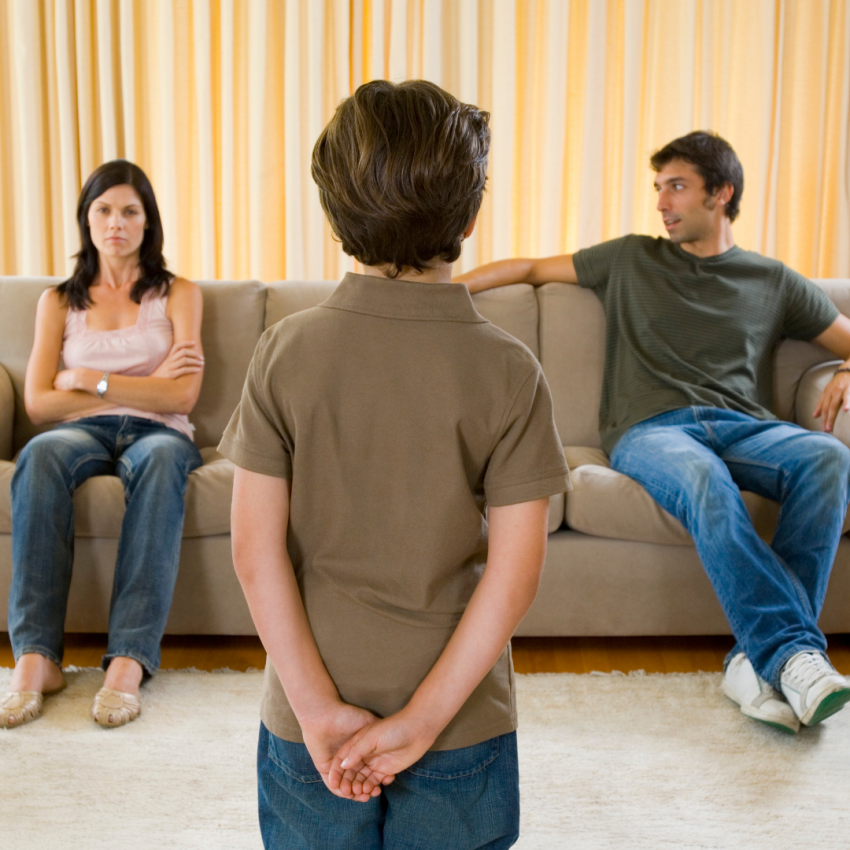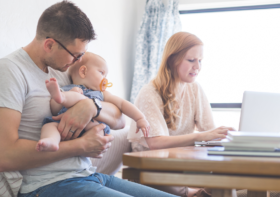Causes and Effects of Parental Anxiety

Anxiety is the feeling or condition of being stressed out, worried, or scared, often for no apparent reason. It is a feeling of fear, dread, or doom about an imminent event or something of an uncertain nature. Those suffering from anxiety typically describe it as a heaviness, a heavy sensation in the body, a tight chest, or tingling in the extremities. While anxiety is common, it is not uncommon for parents to experience it.
What Is Parental Anxiety?
Parental anxiety refers to anxiety associated with being a parent or caregiver. It can include concerns about the child’s health and well-being, developmental milestones, academic performance, and social life. Parental anxiety is generally a common emotion experienced by many people in their early days of parenting. In some cases, this anxiety can be triggered due to traumatic events such as when a birth injury occurs. Whether due to medical negligence or something else, birth injuries can range from minor to severe, and can have long-lasting physical and emotional effects on both the child and the parents. In such cases, it is important for parents to get in touch with a Georgia child birth law firm (or a similar firm near you), as they can provide guidance and support in pursuing legal action against medical professionals or facilities responsible for the injury. This is just one of the examples of things that causes parental anxiety. While it may not be as extreme for everyone, one can understand why people may feel crippling worry for their child’s well being. Parental anxiety, therefore, is a real concern and should be taken seriously. Families that are facing this issue should seek out help and treatment for the problem.
What Are the Causes of Parenting Anxiety?
Feeling incapable of handling parenting.
Parenting is difficult. Even the best parents can struggle. It can be the most challenging when a parent has anxiety issues. Parenting with anxiety can make you feel stressed, overwhelmed, and out of control.
Being bombarded by parenting advice
Parenting is nerve-wracking, and when you’re bombarded with all the advice you read online and in parenting magazines, it’s hard to know what will help your parenting skills. What works for some parents may not necessarily work for others, but you should be aware of the four major causes of parenting anxiety.
Being too controlling
For many parents, these feelings can be exacerbated by common parenting practices such as overcontrolling, constant monitoring, and being controlling of their children. Being too controlling can negatively impact the parent-child relationship, so it’s important to learn how to shed restrictive control when parenting anxiety strikes.
Being too disengaged
We may feel hopeless, or we may just want to make the whole thing go away. But the reality is that feeling anxious and tired is a natural part of parenting. Nobody gets through parenting without feeling overwhelmed, exhausted, or anxious about our kids. But we can learn how to better cope with these emotions by understanding the root of the problem.
Effect of Parenting Anxiety
Increased Stress
By fourteen, a child knows everything about you-even how you breathe. They know how to make you laugh and cry and how you feel when you are upset. With this knowledge, they can sense your stress. Even if you are calm, your child will know if you are tense, and this tension will affect their stress level.
Increased Anxiety
Parenting anxiety is a growing problem in today’s society. This anxiety is very real and can have a negative impact on the well-being of a parent. It can obstruct their day-to-day activities, from their sleep cycle to their eating habits, which is why it is crucial to get a remedy for this. For starters, you can try out cannabis products such as hash, which can ease your symptoms of anxiety by calming your mind — you can learn more about this here.
Decreased life satisfaction
Parenting is a rewarding job, but it can also be very stressful. Such anxiety is a type of stress that can be especially stressful. It is twice as likely to negatively affect children than other types of stress. This can also cause parents to feel alone in their stress, causing feelings of loneliness and depression.
It is a well-known fact that parental anxiety and stress can affect a child’s development.
But how does a child experience anxiety? When a child has anxiety, their breathing and heart rate increase, their blood pressure increases, and they feel sweaty and shaky. This increase in heart rate and blood pressure in the brain causes anxiety symptoms such as stomach pain, dizziness, and headaches.
Therefore, it would be imperative that you get the necessary help so that it does not affect your child as well. You could reach out to professionals who could give you insights and advice on how to deal with such issues. Alternatively, you could consult a professional who specializes in alternative treatment based on the use of CBD. Once you have a prescription and a recommended dosage, you could browse through sites such as https://lowpricebud.co/product-category/cbd/ or many such others to purchase safe, and tested products.
Be sure to go through the customer reviews as well when you visit the websites of dispensaries. This will provide more clarity on the efficacy of the product. For instance, the reviews about gummies, oils, and flowers on canadacannabisdispensary could enlighten you on the level of satisfaction that consumers may have experienced after their initial usage. You can use the data to make a more informed decision as opposed to blindly buying cannabis.
Conclusion
Parents with anxiety are more likely to have children who develop anxiety disorders. Most anxious parents are young, single, or underemployed and may have mental health, substance abuse, or financial problems. So, parents should deal with such issues so as to prevent anxiety development in children as well. Children with anxious parents and the child’s siblings are more likely to have anxiety disorders. Anxious kids also tend to act more aggressively. Parents are less likely to get professional help for their anxiety, and kids are less likely to get professional help.




Leave a Reply